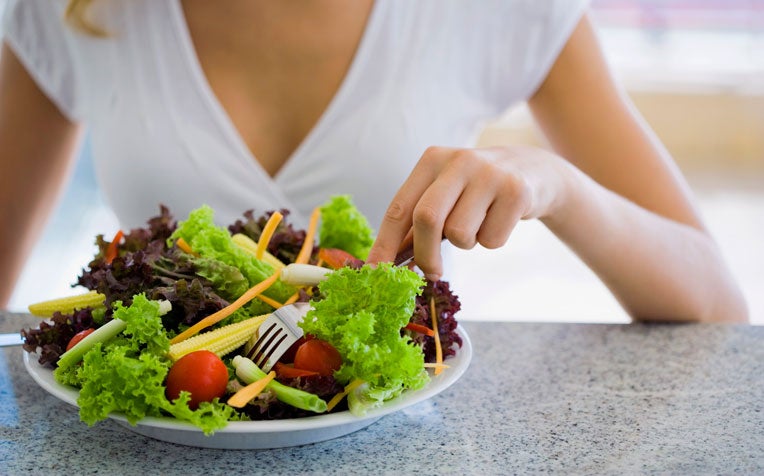
Pregnancy What should you leave out of your pregnancy diet?
It is not uncommon for expectant women to be extra-careful when it comes to their pregnancy diet. However, aside from a well-balanced diet, one should also be wary of the following foods and drinks. Ms Kellie Kong, Dietitian from the Department of Nutrition & Dietetics at KK Women’s and Children’s Hospital (KKH), a member of the SingHealth group, explains more.
What not to eat during pregnancy (continued)
Unwashed salads
Vegetables are generally good for you. However, unwashed salads or ready-to-eat salads are foods to avoid during pregnancy. This is because the vegetables may carry bacterial contamination from soil. In addition, salads that cannot be heated and are left at room temperature may be contaminated with bacteria.
So please exercise caution when buying pre-packed salads as you are more susceptible to food poisoning during pregnancy. In addition, avoid homemade salad dressings that may contain raw eggs.
Fresh juices
If you like to drink fruit juice, opt for the pasteurised option in the supermarket rather than fresh juices at the food court. Fresh juices may contain harmful bacteria. Even better, have a piece of fresh fruit instead!
Alcohol
Having alcoholic drinks during pregnancy may affect the development of the fetus and lead to slower physical growth and mental problems - a condition called fetal alcohol syndrome (FAS).
Drinking alcohol during pregnancy may also lead to miscarriage, stillbirth and premature birth.
However, it is okay for you to add small amounts of alcohol to your food during cooking. Just make sure you simmer your dish for at least 30 minutes, with the lid removed, to allow the alcohol to vapourise.
Caffeine
It is best to avoid caffeine during pregnancy as it is a stimulant which can increase your heart rate. This in turn may increase stress to baby and potentially increase your risk of miscarriage.
If you really need your daily caffeine fix during pregnancy, limit yourself to 200mg of caffeine a day - equivalent to 2 cups of regular coffee or tea. Cola drinks and beverages containing chocolate also contain small amounts of caffeine, so consume these in moderation.
Alternatively, you may have up to 2 cups of decaffeinated tea or coffee per day.
However, please take note that decaffeinated tea and coffee, just like regular tea and coffee, contain polyphenols and tannins which can inhibit iron absorption, and pregnant women have higher needs for iron. Therefore, avoid drinking tea or coffee within 1 hour of main meals.
Milk thistle and rooibos tea
There isn’t enough scientific evidence to suggest that herbal products such as milk thistle and rooibos tea are safe to use during pregnancy.
Milk thistle has been used historically to improve breast milk flow, and two brief studies of milk thistle consumption during pregnancy reported no side effects.
However, in theory, milk thistle may lower blood sugar levels. Hence, caution is advised if you have diabetes or hypoglycaemia.
In addition, milk thistle plant extract may have estrogenic effects. So, if you have hormone-sensitive conditions such as endometriosis and uterine fibroids, you should also avoid it.
If you want to improve your breast milk supply, you may take fenugreek or black cumin during breastfeeding. Both herbs are listed as GRAS (Generally Recognized as Safe) by the US Food and Drug Administration (FDA) when used in moderation.
Ref: O17


















 Get it on Google Play
Get it on Google Play